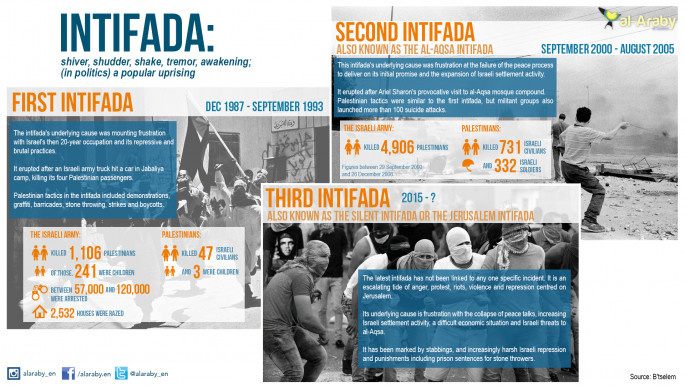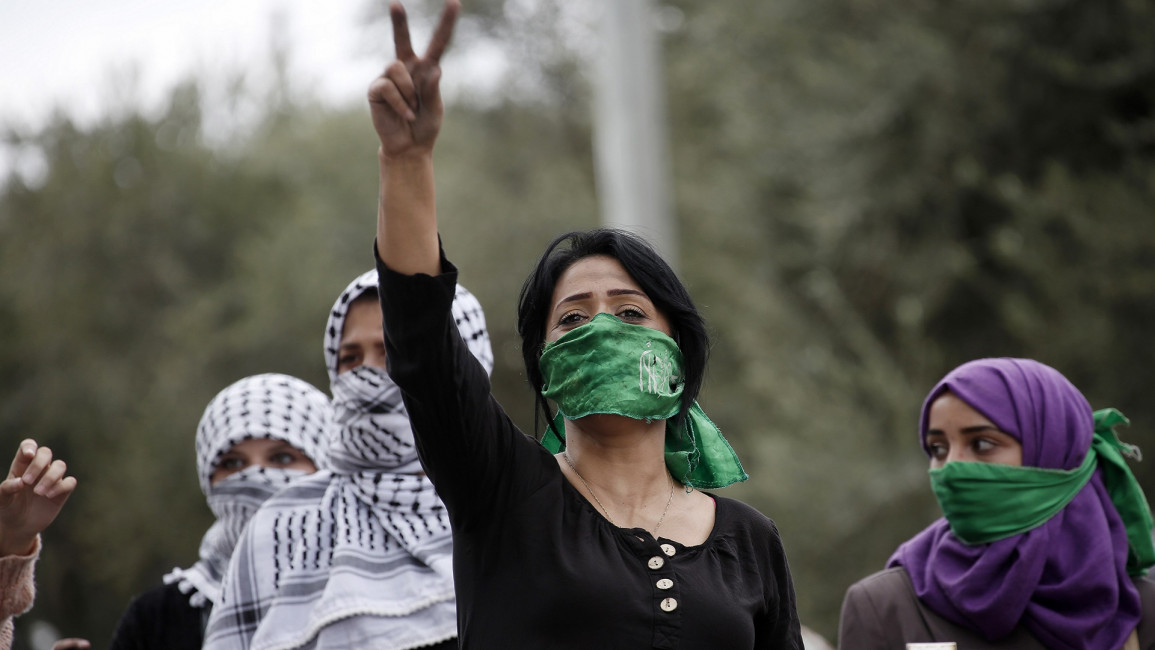Hamas calls for Palestinian protests amid de-escalation push
US Secretary of State John Kerry plans to travel to the Middle East soon in a bid to calm the widespread unrest and soaring tensions in the occupied Palestinian Territories, amid signs of a mutual Israeli-Palestinian de-escalation.
US and Palestinian statements over the past two days suggest political efforts could be underway for de-escalation as part of the attempts to contain the two-week-old popular uprising in Palestine.
However, the US bid seems to be slow and inconclusive, with other regional issues overshadowing the developments in Palestine.
According to information obtained by al-Araby al-Jadeed Arabic, Kerry has since urged both sides to take steps towards defuse tensions.
Such steps started to emerge with the Palestinian leadership contacting Palestinian members of Knesset (MKs) and urging them not to come to al-Aqsa Mosque.
At the same time, Palestinian state television has stopped covering clashes.
On the Israeli side, there have been reports suggesting the Tel Aviv could implement an unofficial freeze on settlement building.
Informed Palestinian sources told al-Araby al-Jadeed Arabic that the unofficial freeze would take place ahead of Israeli Prime Minister Binyamin Netanyahu's meeting with Obama on November 5.
However, Mahmoud al-Habash, adviser to Mahmoud Abbas, denied the reports about the settlement freeze, while Nimer Hammad, another adviser to the Palestinian president, stressed that there was nothing official yet about the settlement freeze apart from some leaked information.
On Tuesday, Kerry said at Harvard University that a "massive increase in settlements" built by Israel in recent years has led to the "frustration" and "violence" now stoking its decades-old conflict with the Palestinians.
In his most extensive comments yet on the events in Palestine, Kerry said a permanent resolution to the Israeli-Palestinian conflict was becoming increasingly elusive, thus aggravating tensions on the ground.
"What's happening is that, unless we get going, a two-state solution could conceivably be stolen from everybody," Kerry said. "And there's been a massive increase in settlements over the course of the last years, and now you have this violence because there's a frustration that is growing." Kerry said he planned to visit the region to try to calm things down, but did announce a date. Kerry also pledged to work to achieve progress on the two-state solution front in the remaining term of the Obama administration.
Kerry said he planned to visit the region to try to calm things down, but did announce a date. Kerry also pledged to work to achieve progress on the two-state solution front in the remaining term of the Obama administration.
The Islamic Resistance Movement Hamas called on Wednesday on PalestinianS in the West Bank to take part in protests planned for Friday.
In a statement seen by al-Araby al-Jadeed Arabic, Hamas called on Palestinians to escalate the protests on Friday in response to the recent violent crackdown by the occupation forces which Hamas said was "meant to stop the angry tide against" Israeli occupation.
On Wednesday, Lebanese Hizballah chief Hassan Nasrallah said the recent upsurge in violence in Jerusalem represents the birth of a new Palestinian intifada against Israeli occupation, and declared his unwavering support to all forms of Palestinian resistance.
Speaking in a televised address to mark the first day of the Muslim Ashura holiday, Nasrallah denounced Israel's policies at Jerusalem's al-Aqsa Mosque which sparked two weeks of violence in which more than 30 Palestinians have been killed.
Israel has deployed 300 soldiers in Jerusalem and throughout the country to try to stop the most serious eruption of Palestinian street attacks since an uprising a decade ago.
Many Palestinians are frustrated with the failure of years of peace efforts to bring them statehood and end Israeli settlement-building in the West Bank and East Jerusalem.
32 Palestinians have been killed in the past two weeks as well as children and protesters shot in anti-occupation demonstrations.



